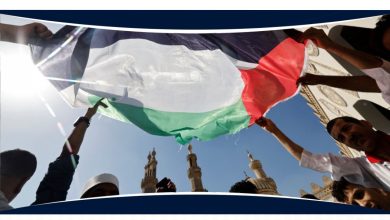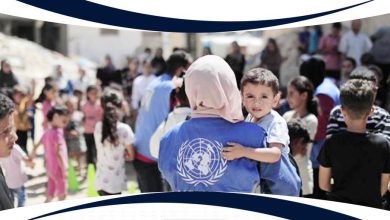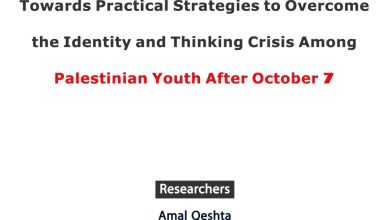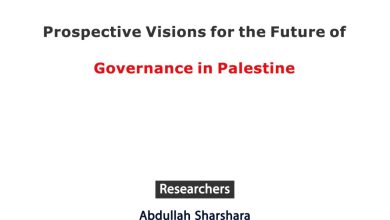War on Gaza
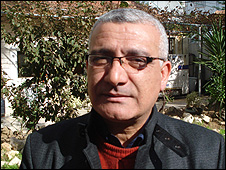
 Old Questions in need for New Answers
Old Questions in need for New Answers
By Omar Sha’ban
Despite the fragile cease fire declared unilaterally by Israel on Saturday morning, people of Gaza Strip in general, and those who live in Gaza city in particular, were able after 22 days to get out from their places of residence to check on their houses and belongings, on their families and friends. People were in shock with the first sights of huge destruction that was caused by the heavy shelling. Everything, whether on the surface of the earth or underneath, was a target to the Israeli shelling; buildings, hospitals, roads, electrical networks, water networks and even trees.
In the areas and neighborhoods where Israeli ground forces have gone into or through, the damage touched every single object, including TV sets, furniture, windows, doors, bedrooms…nothing was excluded. There were many marks that stated clearly “Israeli army has passed by…”
In some areas, people started to dig under the rubble searching for their family members. As expected, more than 100 bodies were found in just few hours of search. An international worker describing the view of Gaza city, just hours after the cease fire was announced: “It is like the view of an earthquake!!!” Another international worker said: “It is more than an earthquake; it is a volcano where earthquakes cause death and destruction but volcanoes cause death, destruction and burning”. Some of the bodies found on Saturday were still sending smoke indicating that the white phosphorous, that was used extensively, is still active.
Nevertheless, with big pains and sorrows, people of the Gaza Strip started to ask some of the Old but Big Questions:
a) What are the outcomes of the whole thing!! What are the outcomes that are equal or could justify the big sacrifices!! Was there any way to avoid what happened? Was this war avoidable or not!
b) If the war was avoidable, who is to be blamed for not making enough efforts to avoid what happened!!
a. Should Hamas be blamed for not making enough efforts to renew the truce with Israel, to be blamed for its poor assessment of the Israel military capacities or for not making enough efforts to achieve the national reconciliation!!
b. Should we blame the PA in Ramallah that did not pay enough efforts to reconcile, to ease the closure or to take strong position against the Israeli offensives?
c. Should we blame the international community which put the entire Gaza Strip under unfair and severe sanctions?
d. Should we blame the Israeli occupation that never ceased to stop killing and destroying the Palestinians over and over the past decades?
e. Or should we blame the Palestinian factions that have never been traditionally responsible for their actions and their outcomes?
c) People might accept big sacrifices if the outcomes will bring an end to their prolonged suffering!! People might not be able to know exactly what is good for them, but what they are sure of is their genuine hope for fundamental changes in their leadership. During the war period and afterwards, Gazans were wondering:
Where are the PLC members we voted for in 2006 elections?”
Where are those leaders who wanted to be ministers?”
Where are those who always appeared on TV praising themselves and their actions?
People in the streets were highly disappointed as they didn’t find those leaders during the crisis. In my assessment the war on Gaza will affect the trust of the Palestinian public on the current political system mainly the leadership and its traditional techniques. Moreover, Palestinians will be looking at the concept of “resistance” differently. It won’t be easy for the current leadership to sell to their constituency old products of same old leaders and with same old methodology. I expect people will be more willing and decisive on their destiny.
a) Which changes, if any, would the war on Gaza bring into Hamas movement? It is clear now that the war on Gaza did not aim as was the assumption or at least for sure did not succeed to take Hamas out of power. So Hamas will be in power and it will continue to be part of any future deal. The question remains: “Did the war have any effect on Hamas governing style?” If yes, then what are these changes on both levels; the local and the international? On the local level, how will Hamas re-shape its relations with Fateh movement, the civil society, the media in particular, the PA in Ramallah, and position itself on the issue of the crossings or the peace talks?
It is believed that Hamas will handle these issues collectively in a package style. The progress in any issue will depend largely in the progress with other issues. If Hamas will be put under pressure again with other measures such as sanctions, boycott and neglect, then it might be pushed to be more aggressive towards Fateh movement, human rights issues and or other civil society actors. Today, there is big fear amongst Fateh supporters that Hamas will crackdown aggressively against them due to 2 accusations: Fateh people did not join in the fighting and some Fateh members have shown their “happiness” for the war against Hamas!
b) Who is going to help the affected people in reconstructing their assets!! And by how much and how long they need to suffer until the reconstruction process commence!! People are fully aware how difficult the reconstruction will be, considering the siege, the shortage of raw materials and considering the political division between the PA in Ramallah and Hamas in Gaza. People are very modest in their hopes and demands; they want to have their assets re-built as they were before the war, nothing less – nothing more!! Within this fear, if Hamas is going to continue to rule Gaza, how the International community and the PA will flow into Gaza their donations and support? Will they be bypassing Hamas as was the case after 2006 elections?
It is well known that both Hamas and the PA want to utilize the possible aid to restore their reputation. Hopefully, both will come to realize soon that without reconciliation, they both are doomed to fail in meeting the expectations of the Gazans. Nevertheless, the tendency of Hamas and the PA in Ramallah towards national reconciliation will depend largely on the mechanism that will be followed to channel aid into Gaza. Since March 2006, the international community introduced the TIM and PEAGAS mechanisms. These two mechanisms which were used to bypass Hamas will be not suitable for the reconstruction of Gaza. The two mechanisms were introduced mainly to pay the salaries of PA employees, to cover costs of health needs and of the industrial fuel for Gaza power plant in addition to the allowances of hardship cases. These two mechanisms weren’t workable in financing the developmental projects in Gaza.
As expected, the re-construction of the Gaza Strip requires close coordination with Hamas government and its affiliated institutions such as municipalities, land authority, the water & electricity authorities in addition to the security apparatus. New mechanism must be introduced if the current division between the PA and Hamas is not resolved. An independent fund could be established to finance the reconstruction. This fund could be under the umbrellas of the World Bank and the Islamic Bank in Jeddah/ Saudi Arabia which was assigned in the year 2000 as administrator of the Arab aid to the Palestinians.
By all means, Gaza people shouldn’t be abandoned again by the international community. Gaza people shouldn’t be punished because of the split between Hamas and Fateh and by the no-recognition of Hamas by Israel
The best scenario is to resume dialogue between Hamas and the PA in Ramallah and to formulate a coalition government that can fulfill the conditions of the international community. The International community should push both sides to reconcile as a pre-request to enable the flow of aid into Gaza. This condition must be used by the international community to encourage both sides to make serious compromise to allow all forces committed to human rights and humanitarian aid to face the real serious question:
“How could the reconstruction process start if the crossings will remain closed by the Israeli occupation?”
Omar Sha’ban is an economist and the chairman of PalThink for Strategic Studies. He can be reached in Gaza Strip at omar@palthink.org

